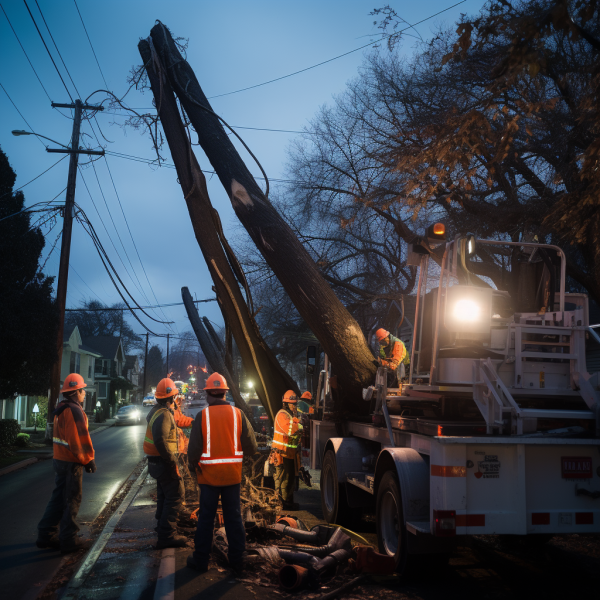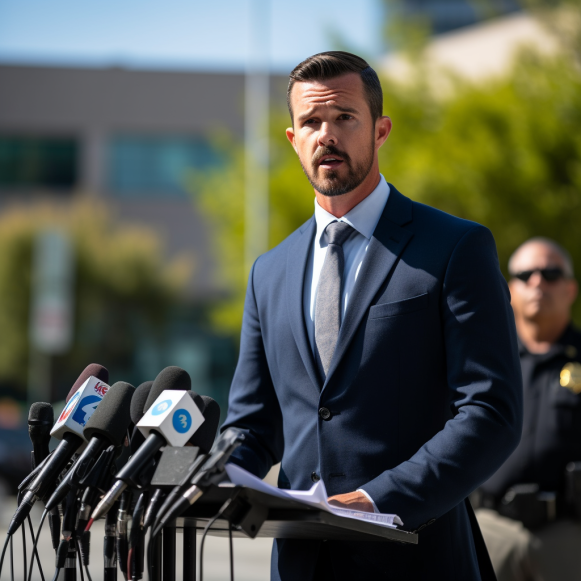DOCUMENTS SHOW TAIWAN WORKING WITH FBI TO PROSECUTE CHINESE AMERICANS, INTIMIDATE US POLITICIANS

During a controversial visit by Vice President William Lai (the front-runner for his country’s next leader), official documents show that the Taiwanese government is attempting to incite anti-China sentiment, influence and intimidate American politicians, and is even collaborating with the FBI and other agencies to spy on and prosecute Chinese American citizens.
The investigation’s main points
- Taiwanese officials are monitoring Chinese Americans and passing information to the FBI in an attempt to prosecute them.
- Taiwan is collaborating with “friends” in the media and politics to instill fear of China and Chinese people in the United States.
- Taiwanese officials claim to be “directing” and “guiding” US politicians.
- Taiwan is keeping an eye on and intimidating US politicians who they believe are too pro-China.
- The island spends millions of dollars funding US think tanks that inject pro-Taiwan and anti-China rhetoric into American politics.
PROSECUTING CHINESE AMERICANS IN COLLABORATION WITH THE FEDS
Officially, Vice President Lai’s visit to the United States is just a stopover on his way to Paraguay (the United States does not formally recognize Taiwan as an independent state). He has appearances scheduled in both New York and San Francisco.
Lai is an outspoken leader of Taiwan’s growing independence movement. Many nationalists believe Taiwan is culturally distinct from the rest of the country and that it would be better off as a fully independent state. They are attempting to gain American support and influence American public opinion in order to achieve this goal. China, on the other hand, sees the issue as entirely internal, and American efforts to wrest Taiwan from its orbit as a potential trigger for World War Three.
The cables reveal that part of the effort to influence American politics is waging a silent war against pro-Chinese groups and directly working with and sharing intelligence with the FBI and other agencies. “Through more offensive and lethal measures, we should seize the opportunity to counteract and further weaken China’s grassroots influence activities in the United States,” says a cable from Taiwan’s Ministry of Foreign Affairs (MOFA). The same document directs all offices of Taiwan’s de facto US embassy and consulates, the Taipei Economic and Cultural Representative Office (TECRO or TECO), to cooperate with local law enforcement.

“We are pleased to see that some local offices have already begun exchanging intelligence about China with US federal personnel.” “All offices are mandated to monitor China’s activities and increase the frequency with which information is shared with US officials,” the Ministry of Foreign Affairs notes.
The exchanges between Taiwanese agencies demonstrate that Taiwan regards Chinese Americans as suspect, and that any pro-China or anti-Taiwanese sentiment expressed by Chinese Americans may be directed by Beijing itself.
“Chinese Americans have already assimilated into mainstream society, acting as the primary conduit through which Chinese consulates influence local politics, economics, culture, education, and community groups.” “Their presence and activities pose significant threats to Taiwan,” the TECO office in New York wrote, adding that it had infiltrated some of these groups.
Chinese American groups disrupted Taiwanese President Tsai-Ing Wen’s visit to the United States earlier this year. TECO New York claimed that the demonstrations were led by the United Chinese Association of Brooklyn and the Chinese American Community Affairs Council.
Outraged by this, Taiwan appears to have attempted to have these groups arrested and prosecuted as foreign agents, despite the fact that they could find no evidence that they violated any US laws. According to one cable:
“The United States government is well aware that the Constitution protects protesting and free speech. Although the FBI is aware that Chinese Americans maintain constant contact with the Chinese Consulate in New York, charging them in the manner in which the FBI sued Chinese Americans is extremely difficult.”

The plan appeared to be to continue monitoring pro-China groups in the hope of finding something actionable. According to TECO New York:
If we can gather clear and concrete evidence that Chinese Americans and community groups are being directed by the Chinese government, they will almost certainly face prosecution in the United States. We are expected to maintain continuous communication with US law enforcement and share updated intelligence about Chinese Americans and community groups in our jurisdiction in order to assist the US in identifying potential illegal actions by pro-China individuals and community groups.”
The FBI has already contributed to the creation of a fear culture among Chinese Americans. For example, the agency falsely accused Temple University Professor Xiaoxing Xi of spying for Beijing. The FBI illegally searched his home and held his family at gunpoint during their investigation. Currently, Xi is suing the government. According to a survey conducted earlier this year, 72% of Chinese researchers in the United States felt unsafe, and the majority were considering seeking employment elsewhere.
MONITORING, INTIMIDATING, “DIRECTING,” AND “GUIDING” AMERICAN POLITICIANS
The Ministry of Foreign Affairs also directs TECO staff to investigate and pressure American politicians who they believe are too friendly with China, in an attempt to create a climate of fear and suspicion.
The cables highlight two prominent US politicians: New York Governor Kathy Hochul and New York City Mayor Eric Adams. According to the Ministry of Foreign Affairs, they should assist “our allies in politics, academia, and the media” in investigating their relations with China. As stated by MOFA:
We should encourage our allies to investigate and expose the relationships between Chinese American community groups and local politicians, and use the current backdrop of skepticism toward China in U.S. society to keep U.S. citizens on guard with pro-China politicians, warning them to exercise restraint and spontaneously distance themselves from China.”
While it is not stated explicitly how much – if any – influence Taiwan had on its publication, the documents also mention a series of hit pieces in “The National Review” that painted Hochul and Adams as suspiciously close to Communist China. One observer noted Hochul’s “long-standing collaboration” with a Communist official who denies genocide and supports China’s “baseless claims to sovereignty over Taiwan.” Another article, which included significant FBI input, claimed that Hochul and Adams had received donations from Chinese Americans who were allegedly secret police officers for Beijing.
Utah has also become an unexpected battleground between China and Taiwan. In March, a “Associated Press” report headlined “Amid strained U.S. ties, China finds unlikely friend in Utah” smeared a number of Beehive State politicians, falsely portraying them as being in Beijing’s pocket. In the early stages of the COVID-19 pandemic, one legislator was questioned by the FBI after introducing a resolution expressing solidarity with China, while a professor advocating for closer US-China relations was questioned twice.

Again, it is unclear whether Taiwan played any role in the story’s publication, though the FBI/media/Taiwan nexus appears. What is certain is that they took full advantage of the situation. Another legislator mentioned in the AP report quickly issued a statement emphasizing his support for Taiwan and made a number of promises to the island. Many Utah state representatives have joined the Utah-Taiwan Friendship Caucus in order to avoid being labeled as pro-China. Utah has also passed a number of pro-Taiwan and anti-China bills.
Many of these bills have been introduced by Candice Pierucci, a Republican legislator described by the TECO office in San Francisco as a “pro-Taiwan and promising political figure.” According to the wording of the TECO cables, Taiwan may consider Pierucci to be under their control or direction. “Our office has directed Pierruci to follow the trend and lobby more lawmakers to join the Utah-Taiwan friendship caucus,” wrote TECO San Francisco. “We also advised Candice to use the AP reports to increase her media exposure on ‘AP’ and ‘Fox News’ in order to shape her as a pro-Taiwan advocate,” the statement continued (emphasis added).
INFORMATION WAR
Anti-China sentiment in America is on the rise, both among elites and the general public. According to a recent Gallup poll, only 15% of respondents viewed China positively, an all-time low. Even as recently as 2018, a majority of Americans (53%) thought the country was in good shape. However, increased hostility from Washington, as well as a barrage of negative sentiment from politicians and media outlets, has resulted in a drop in this figure. Hate crimes against Asian Americans have increased dramatically.
Support for Taiwan, on the other hand, has been steadily increasing for decades, with the same Gallup poll finding a record-high 77% of Americans favoring Taiwan. Nearly nine out of ten people see the conflict between China and Taiwan – a conflict between a state and an island officially recognized as part of China – as a “important” or “critical” threat to the United States’ vital interests. Only 10% of Americans believe it is unimportant to US national interests.
Part of this dramatic shift in outlook can be attributed to Taiwanese efforts to fund a slew of top U.S. think tanks. According to a 2021 “MintPress News” investigation, TECRO donated millions of dollars to many of the most influential think tanks in the United States, including the Carnegie Endowment for Peace, The German Marshall Fund, the Center for a New American Security, the Center for Strategic and International Studies, the Hudson Institute, the Atlantic Council, and the Center for American Progress.
These think tanks, in turn, produced papers, reports, and other content that were pro-Taiwan but highly critical of Beijing, arguing that the US should defend the former against the latter. In 2019, for example, TECRO gave between $250,000 and $500,000 to the Brookings Institute. Brookings, for its part, has championed the island and has consistently condemned Beijing’s efforts to bring it closer into its orbit.

While Taiwanese efforts may have played a role, the majority of US hostility toward China is entirely self-inflicted. Many in Washington are concerned that the United States is no longer the global hegemon due to China’s rapid economic rise. The country has transformed itself into a manufacturing behemoth and the top trading partner of over 120 countries. The Chinese economy is expected to overtake the US economy relatively soon. Worse, in Washington’s opinion, is Beijing’s appetite for massive infrastructure projects all over the world, which bring countries closer to China and further away from the US.
China has surpassed the United States as a global leader in a wide range of cutting-edge technologies, including 5G communications, high-speed rail, semiconductors, electric vehicles, and solar energy. In order to compete, the United States has pushed other countries to ban Chinese technology (and rely on America). However, its sanctions regime against Beijing appears to have done little to halt China’s rise.
Instead, it appears that Washington’s goal is to shift the conflict from an economic to a military one. Following President Obama’s “Pivot to Asia,” subsequent administrations have shifted military resources away from the Middle East and toward the Pacific. Today, the United States has an estimated 400 military bases around China, and it has attempted to create a “Asian NATO” of states willing to counter China’s rise.
Information warfare is also an important component of the new battle to slow Chinese growth. Due to its ties with China, the United States has prohibited the sale of Huawei and ZTE electronic products and has considered blocking the popular video app TikTok. Other war planners have proposed “kicking China under the table” through psychological warfare, such as commissioning “Taiwanese Tom Clancy” novels to demonize and demoralize the Chinese people.

HISTORICAL LESSON
The triangular relationship between the United States, China, and Taiwan dates back to World War II, when Chinese resistance to the Japanese invasion was centered on two poles. One had a nationalist bent and was led by Chiang Kai-shek of the Kuomintang Party. The Communist resistance led by Mao Zedong was the other.
Despite their lack of resources, the Communists were able to repel the Japanese invaders and fight the US-backed Kuomintang off the mainland. Between 1945 and 1949, the United States invaded and occupied parts of China with a force of 50,000 troops. However, it quickly became clear that the Communists were far too powerful. The United States withdrew, and Chiang Kai-shek and the Kuomintang fled to Taiwan, an island about 130 kilometers (80 miles) from the mainland. Between 1949 and 1987, they established a one-party state that ruled the country under martial law. In 1996, the country held its first democratic presidential elections after decades of political terror and repression.

For decades, the US refused to recognize Mao’s Communist government, instead viewing Taiwan’s government as the legitimate ruler of all of China. Throughout the 1950s and 1960s, Washington was filled with recriminations about the “loss” of China. Nonetheless, by the 1970s, it was clear that the Communists had no future, and President Nixon began to pursue improved relations. The United States formally recognized Beijing as the sole legitimate government in 1979, abandoning their Taiwanese allies. The official US position remains that Taiwan is not an independent state. Indeed, only a few countries, the largest of which is Paraguay, recognize Taiwan as independent.
China became a manufacturing hub for US industry in the late twentieth and early twenty-first centuries, with its cheap and obedient workforce generating enormous profits for corporate America. However, as China has grown powerful enough to pose a threat to US dominance, attitudes toward it in Washington have begun to deteriorate. In order to weaken their rival, the United States is currently supporting a number of separatist movements, including those in Tibet, Hong Kong, Xinjiang, and Taiwan.
TAIWAN’S FUTURE
Regardless of what the major powers want, Taiwanese support for independence is growing. According to a recent poll, 21% of Taiwanese people prefer gradual independence, while 4.5% prefer an immediate break with China. The vast majority, on the other hand, favored maintaining the status quo. Few advocated for Chinese unification.
China, on the other hand, regards Taiwanese independence as a red line, implying that increased Western efforts to wrest control of the island away from Beijing risk turning it into the Ukraine of Asia. According to a recent poll, the majority of mainland Chinese would support a full-scale invasion of Taiwan. Given China’s position, Taiwanese politicians must tread carefully and use masterful diplomacy.
Lai, who previously described himself as a “practical worker for Taiwan independence,” has attempted to persuade the United States to become more involved in the debate. “If Taiwan is safe, the world is safe; if the Taiwan Strait is calm, the world is calm…We’re on the right track already. Don’t be scared or back down because of the increased threat of authoritarianism. On Sunday, he said, “We must be brave and strong.”
Lai clearly sees the United States as critical to the future prospects of a more independent Taiwan. The documents obtained clearly demonstrate this, though few would guess the extent to which Taiwan is interfering in US affairs in order to gain support for this goal.




